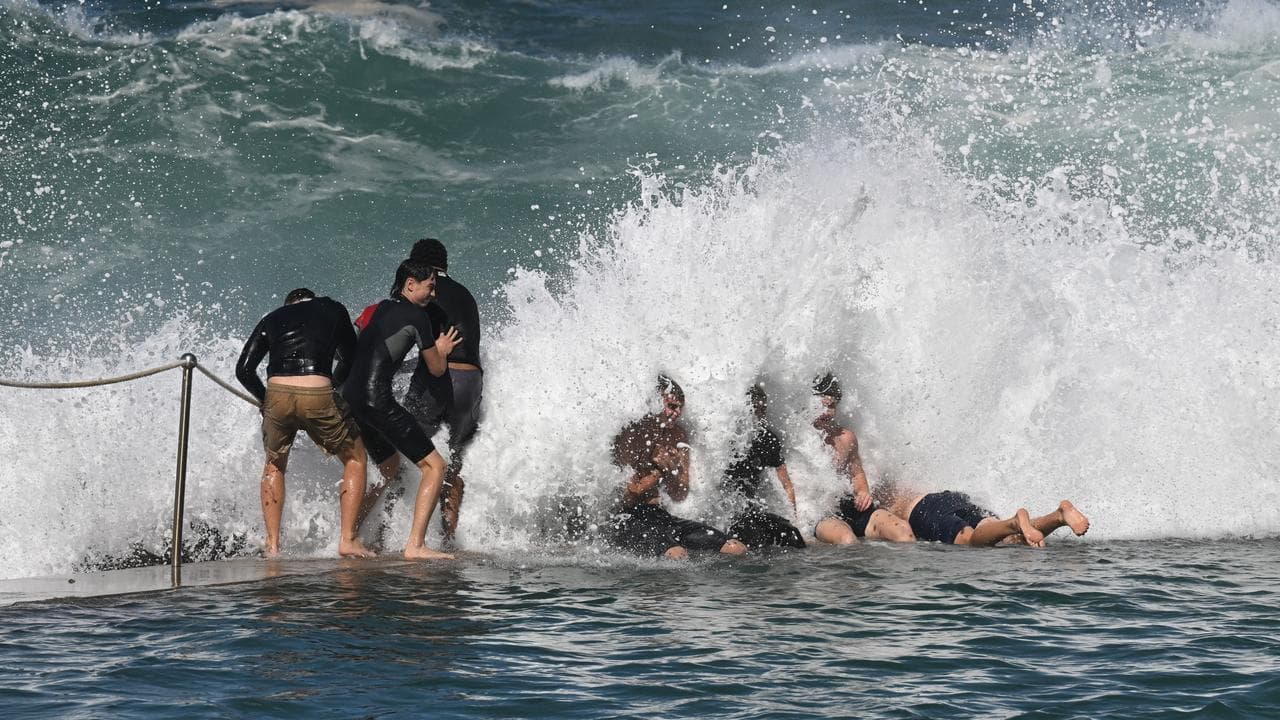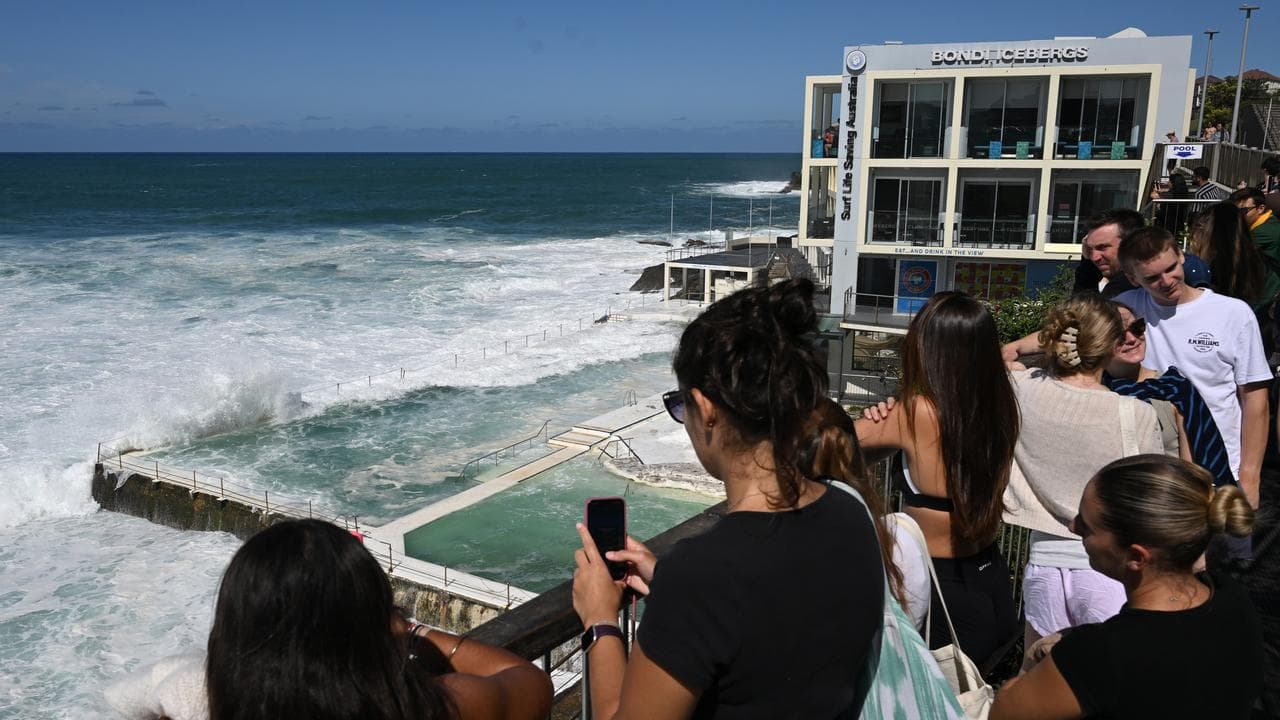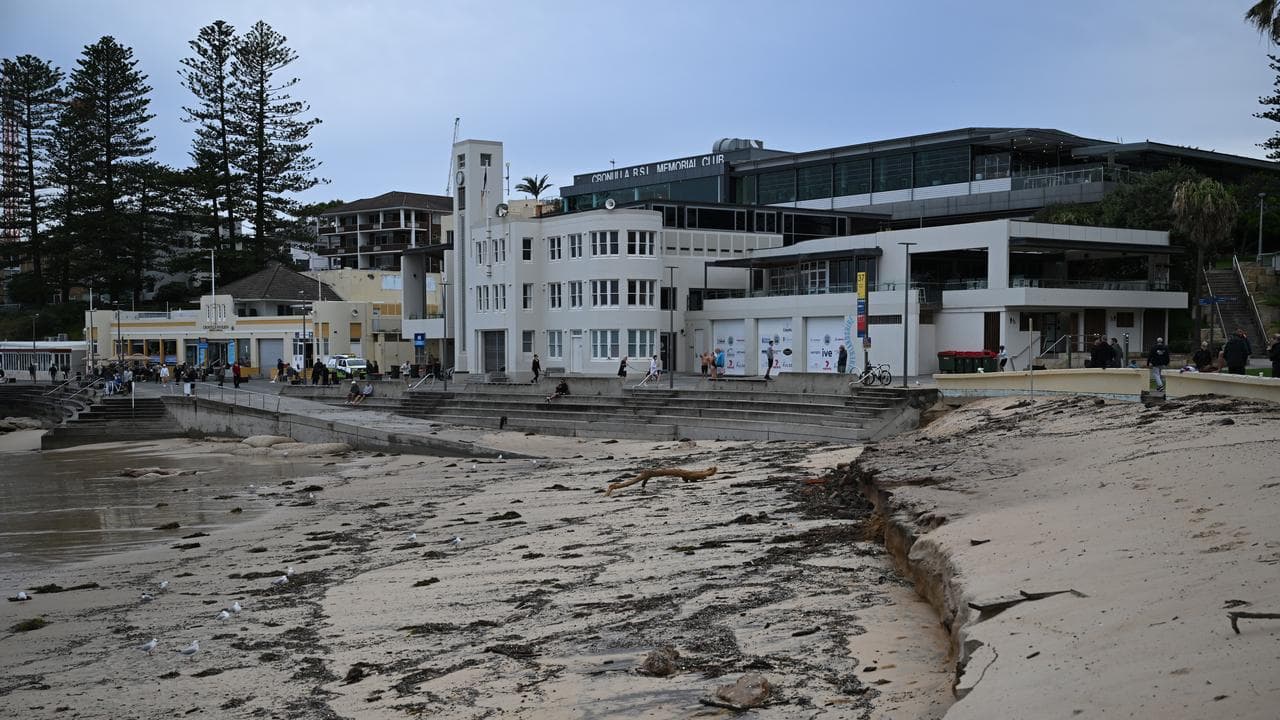
Wild surf conditions have battered beaches in Australia's east, closing waters for swimmers and causing damage as powerful waves smash the coastline.
Well-known Sydney beaches Bondi, Bronte, Clovelly and Cronulla were among those closed on Wednesday as huge swells hit the east coast.
The famous Bondi Icebergs ocean pool sustained significant damage with shattered glass and a mangled railing after it was pounded by the 5.5m swell.
A section of the Cronulla esplanade was also cordoned off with parts of the concrete walkway cratering from 4m waves as civil crews inspected damage wrought overnight.
Brick walls also buckled under the pressure of powerful waves at Bronte, in Sydney's east.
Bayside Council in Sydney's south shared photos of extensive damage, including broken footpaths, fallen debris and crushed bike lanes at Dolls Point as workers furiously tried to ensure traffic flow was safe.

Several popular beaches in the city's north, such as Dee Why, were also closed.
Some adventurous swimmers still braved the conditions in the morning, dipping into an ocean pool overlooking Cronulla beach.
The Bureau of Meteorology said damaging surf conditions were easing, but a hazardous surf warning remained in place for the entire NSW coast.

A 5.9m wave was recorded at Port Kembla, south of Wollongong.
The wild weather has not subsided weeks after the passing of ex-cyclone Alfred as the bureau warns of fallen power lines, trees and debris.
The NSW State Emergency Service said two weather events were expected to bring more heavy rain, flash flooding and weeks of isolation for some communities already inundated in the far west and northern parts of the state.
Outback communities were previously warned they might be isolated for more than two months.
"The significant rainfall in Queensland is slowly making its way through the catchment and moving through western NSW," NSW SES commissioner Mike Wassing said.
"We are talking of isolation potentially for six to 10 weeks for some of those communities."
A major flood warning was in place for the Paroo River, which runs across the NSW-Queensland border, as heavy rainfall from the north worked its way through the catchment.




